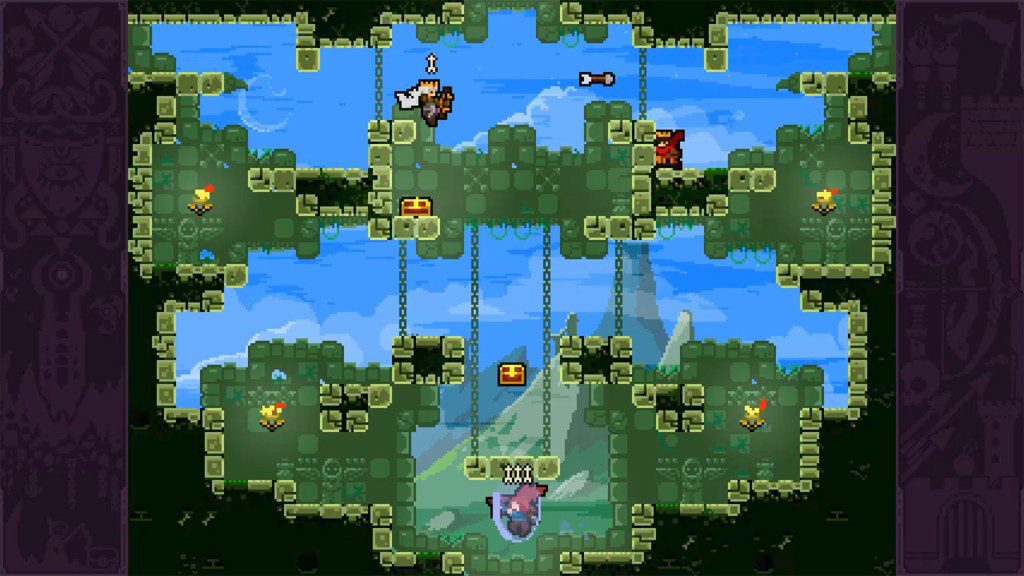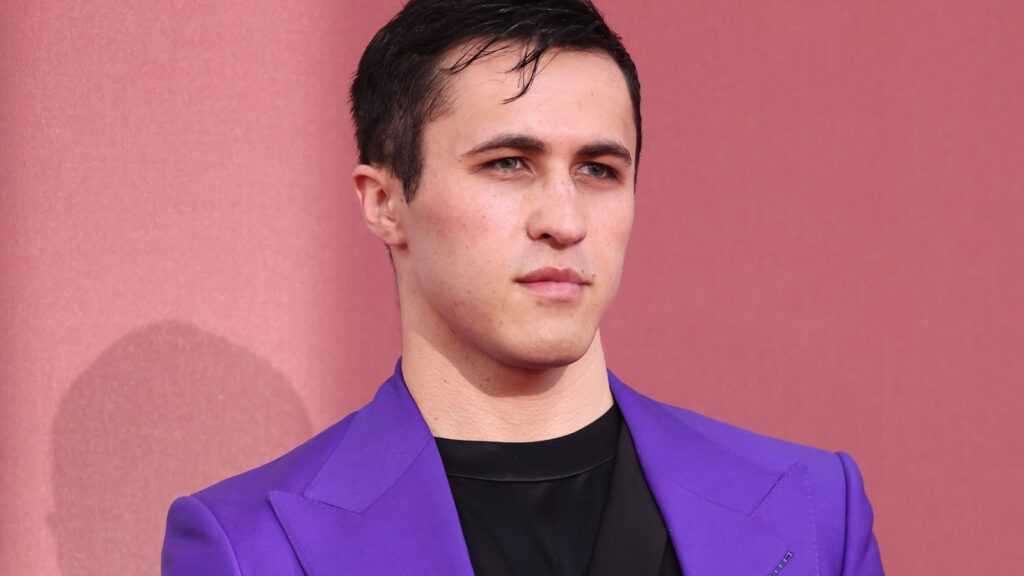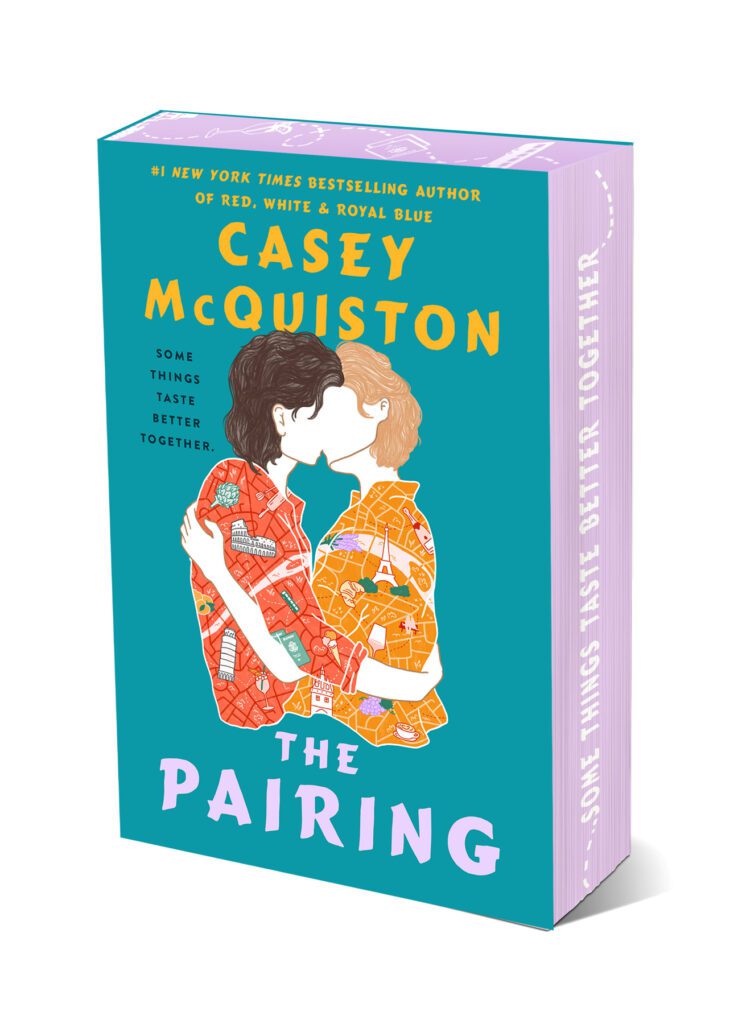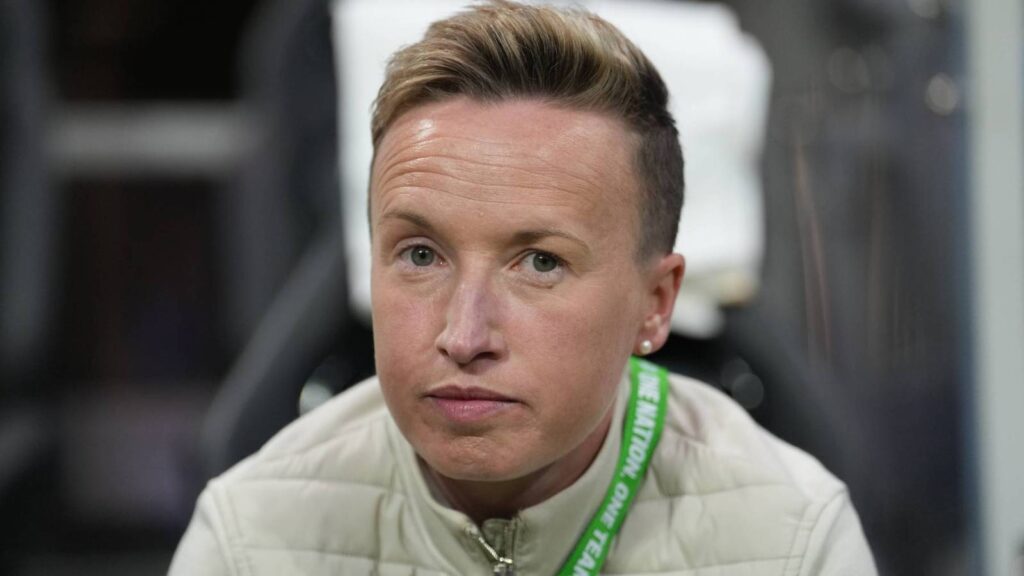Why Maddy Thorson Could Never Make a Sequel to ‘TowerFall’
Imagine a perfect party game — simple enough for anyone to pick up, yet balanced wisely to make everyone feel empowered. Chaotic to look at, but once in-hand it locks players into a trance of control. It’s the type of game that grows deeper and more intense every round as the stakes ratchet up, leaving players clawing for victory, clammy-handed and tight-jawed until the final strike lands. Every round erupts in guttural howling, bleeding together until the wee hours when everyone suddenly remembers it’s time to go home.
If you imagine that game, it probably sounds a lot like Mario Kart or Super Smash Bros. But just over a decade ago, another arose to challenge Nintendo’s monopoly on competitive couch games, and along the way has proven itself to be pound-for-pound the best local multiplayer game ever made. That game is TowerFall.
Created by Maddy Thorson and a small team of developers at the studio Maddy Makes Games, TowerFall has become a cult hit since its limited release in 2013. As an indie local multiplayer game, it never reached the level of industry buzz garnered by Thorson’s second game, 2018’s Celeste — and for good reason. Celeste famously became a cultural lightning rod as a rare queer-coded game with its depiction of a canonically trans protagonist whose story, as fans would later discover, reflected its creator’s. By sharing her experience as a transgender woman with fans through her work, Thorson would become one of the most beloved voices in indie gaming, and an inspiration to marginalized fans in the queer and trans communities.
Despite being overshadowed by Celeste, TowerFall served as a blueprint for Thorson’s ability to bring communities together through her uniquely personal and technically brilliant game design. To commemorate the 10th anniversary of the game’s wide release on console and PC, Thorson spoke with Rolling Stone, reflecting on the development of TowerFall, its legacy, and how much has changed since its release.
TowerFall follows a simple conceit: two to four players (up to six in later versions) play as archers in a pixel-art arena, systematically hunting each other down. Archers begin with three arrows and must pick up loose ones to restock. Every hit is lethal — a single head stomp or arrow strike kills, and the rounds end when there’s only one (or none) left standing.
It’s as straightforward as it sounds, but the simplicity belies its grace. I originally picked up TowerFall when it launched for PlayStation 4 in 2014, and it instantly became the de facto party game in my house — and often the reason for the party in the first place. With a control scheme consisting of merely “shoot, jump, and dash,” there’s practically no learning curve. A player could pick up the controller and sweep, sometimes against people who had been playing for years, based on instinct alone.
Thorson herself is keenly aware of why the game’s multiplayer edge is so effective, but the game wasn’t always intended to be played that way. “At the very start, it was going to be single-player,” Thorson tells Rolling Stone. “And it was almost like a roguelike thing where you’re climbing a tower, but it just wasn’t working. And then I prototyped the multiplayer and, immediately, that was fun — immediately, everyone was excited. I was like ‘screw the single-player.’ It just wasn’t working.”

The blue archer as depicted in the original game.
Extremely OK Games
Beginning development in 2012, Thorson had hoped to make the leap into commercial game development with original iteration of TowerFall as a solo experience and was nervous about making the pivot. “It was frustrating because I knew that multiplayer games were a harder sell, [and] at that point I hadn’t released a commercial game yet,” she says. “It seemed like a really dumb idea, but it wasn’t up to me. [That] was what was fun about the game, and it felt like a waste to shelve it.”
Once prototyping began, Thorson turned to her friends and fellow indie developers to test and refine the game’s mechanics, and their enthusiasm reinforced her commitment to multiplayer. “It was a period in my life where I was in communal living situations, so in that respect, that kind of shaped the game,” she says. “It was just getting my friends together to show them the game, and a local multiplayer game would just lead to everyone screaming and laughing, whereas a single-player game — especially because TowerFall was never really compelling as a single-player game — just didn’t have the same reaction.”
Her experience playing the early build with people reflected the way the future audience would flock to the game and blurred the lines between development and socializing. “If I had been living alone or something, it probably would have been something else, right?” she says. “I was in a new city; I was making lots of friends. We were having lots of parties. And it’s like a chicken or the egg thing of like, ‘Did TowerFall make me have all those parties and make all those friends, or was it the other way around?’ I don’t really know.”
It’s a party!
Captured on Nintendo Switch
While the influence of Nintendo games like Super Smash Bros. is inarguable (Thorson herself calls TowerFall a flat-out “rip-off”), there’s one key difference that elevates her game into something less daunting: equality. Unlike most fighting games, where characters have bespoke styles of play that differentiate them, every character choice in TowerFall is entirely superficial — they all play the same. That, combined with the one-hit kill mechanic (lifted from PlayStation classic Bushido Blade) means that there are no complex moves to learn that divide player skill, and one mistake or conscious decision to double team someone can turn the tide for the underdogs.
At one point, Thorson had considered going with the more customizable approach. “It would really be fun to design a game more in that style” she says. “I don’t really think about local multiplayer design that much anymore, but I remember having a lot of sketches of different character abilities and stuff like that. But in the end, I felt like I had to make it as simple as possible.”
Most party games, like Mario Kart, have built-in mechanics to help close innate skill gaps between players. Dubbed “rubber banding,” it usually comes in the form of some CPU-determined item (think: blue shell) that turns the tide for people lagging behind. But in TowerFall, the design leaves it to the players to self-regulate — usually through uneasy alliance.
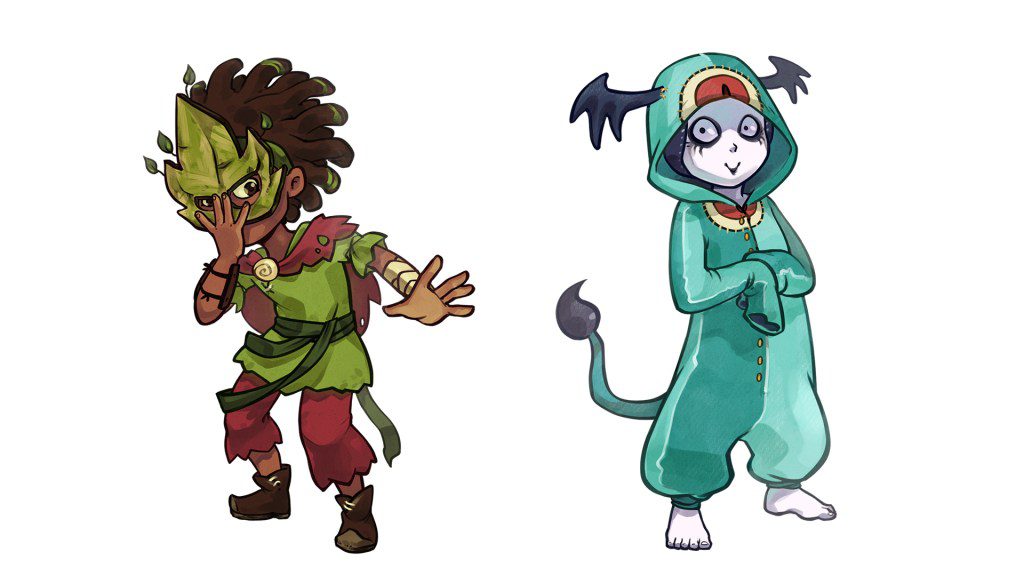
The “Dark World” expansion added tons of new archers and alt skins.
Extremely OK Games
Player scores are counted by the number of kills they get across rounds, rather than hinging on the last player standing winning it all. If one player is having a hot streak, it’s quick to see who everyone else needs to unite against. “The politics of it helps that,” she says. “I think that structure is what makes it work because that lets you keep the one-hit kill nature and everything feel consequential. The matches have that tension of a narrative arc, you have people leading and then you can gang up on them. All the good stuff.”
Having “narrative tension” is also a good way to describe the game’s actual launch. Thorson had originally thought that she might be able to create the game to publish on PlayStation 3, but the scope of that system’s market — alongside its notoriously complex design architecture — deterred her. Instead, she found a launch partner befitting her more modest ambition: the ill-fated Android-based console, Ouya.
Lasting from only 2013 to 2015, the Ouya was a “microconsole” intended to be a cheaper alternative to the Xboxes and PlayStations of the world, and a place for indie developers to thrive. In 2013, TowerFall launched on the platform and quickly became its killer app as one of the only games on the Ouya to garner any buzz. “The idea [was] an indie console,” she says. “I really liked that idea because it felt I get a smaller, almost like a beta test or something. I am glad we did it. It’s hard to tell if the game would have been as successful if we hadn’t, because they really did get us a lot of attention.”
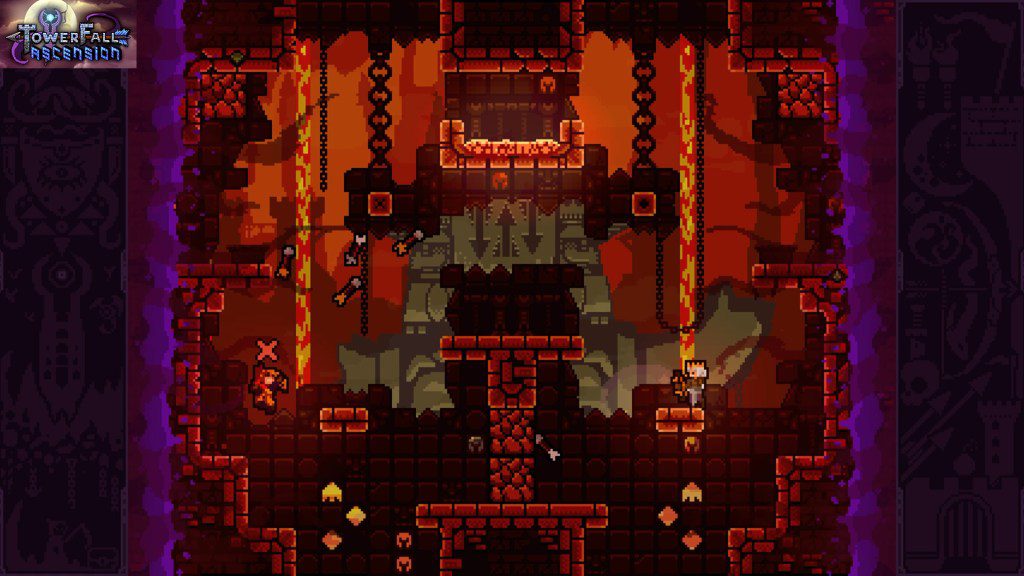
Captured on PlayStation 4
Post-Ouya, things changed quickly, as the lack of traction on the experimental console meant commercial success was still out of reach for Thorson and her team (“Pretty much everyone on the team was working for free.”) So, when an opportunity arose to jump to PC and the newly released PlayStation 4, Thorson felt empowered by the initial critical reaction to take the leap. The move paid off, and TowerFall Ascension, an enhanced version of the original game, became the best-selling version of the game.
But that wouldn’t be the last leap forward for the game. After it became a commercial hit, the team pushed it further with the downloadable expansion, “Dark World,” as well as a port for Xbox One. In 2018, it made its way to the Nintendo Switch which, to Thorson, is considered the definitive edition. “The Switch version, we got to include the six-player, and then we also got to include the DLC in the main game, which I think [is] just a better package,” she says. “And then on top of that, we also go to simplify the title back down to TowerFall, which I always thought was the best title. All the subtitles were just there to signal that there was new content, but I think the game should just be called TowerFall.”
There was also a more meaningful angle to the Switch port. “[There’s also] the homecoming aspect of being on a Nintendo console,” she says. “Nintendo feels, philosophically, the right place for TowerFall. Just the way people play Nintendo consoles, it just feels like the right place for it.”
Outside of its impact within people’s homes, one of the biggest takeaways from the initial launch of TowerFall was how raucously it plays with major crowds. In 2013, immediately following its Ouya release, Thorson brought the game to Evo (short for Evolution Championship Series), the biggest fighting game tournament on the planet. It could’ve been like throwing her baby to the wolves, but the game was an instant hit . It would see similar success at the Game Developers Conference (GDC), who hosted the Indie Olympics, featuring the first ever world championship of TowerFall.
It was on the road that Thorson was able to truly comprehend the universal community appeal of the game. “It’s an intimate game — it’s really about mind games and how people’s strategies kind of evolved within their local scene, whether that’s just four friends playing or there’s more of local scene where you live,” she says. “I began to notice that when I travel and go to different cities and play with people who had their own little groups, different places would have very different styles of playing TowerFall, and I think that’s really cool.”
Of course, TowerFall wouldn’t be Thorson’s only major commercial success. In 2018, she released the brutally difficult, yet rightfully adored platformer Celeste. Often jokingly referred to on Reddit as a “hidden gem” despite its colossal popularity, Celeste landed on pretty much every year end list for 2018’s best games and is the developer’s most famous work. The two share much of the same DNA — in fact, the game’s protagonist, Madeline, would be inserted into TowerFall for its Switch and Xbox ports. Thorson has been very open about Celeste’s role in discovering herself as a woman, and the game is equally as revered for its masterful design as it is for being an inclusive piece of pop art that’s all too rare in gaming.
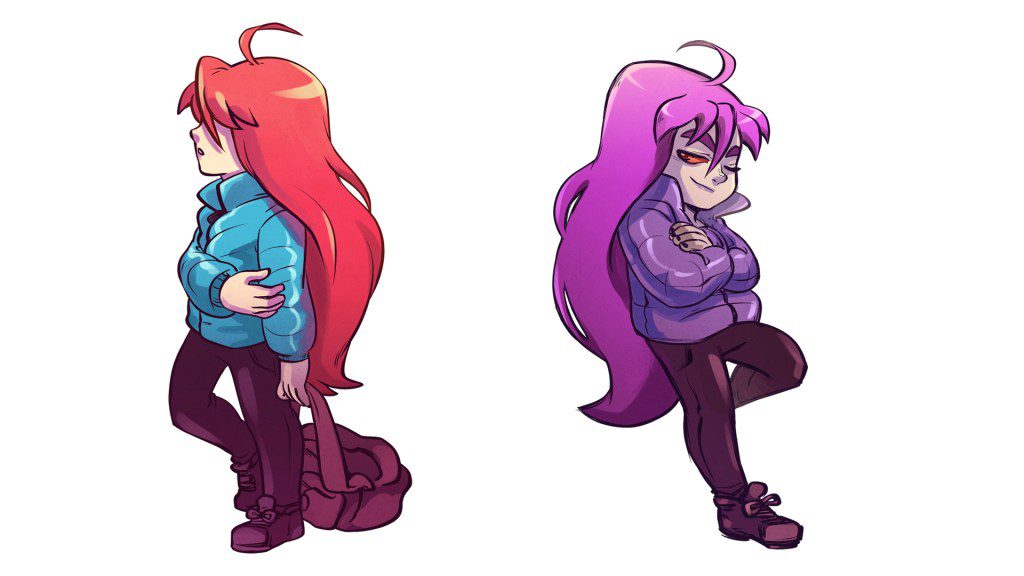
Madeline and her doppelgänger, Badeline, were added to game from ‘Celeste.’
Extremely OK Games
But TowerFall also had meaning for its audience, albeit in a different way. “I think TowerFall‘s is kind of [more] abstract,” she says. “With Celeste, it’s very explicit. It’s very like, ‘Oh, this game helped me figure out who I am.’ With TowerFall, I had this feeling when we were making it that it’s a game with a very defined purpose.”
Delineating the intent behind the games, Thorson emphasizes that they serve different goals in how they’re played. She says, “Celeste is more like a poem or a short story. It’s like a piece of fiction. Whereas TowerFall has a clearly defined purpose that it’s trying to deal with. It’s trying to bring people together, make them laugh and scream and hate each other, in a fun way.”
Predicated on shared experiences through group play, TowerFall’s beauty lies beyond the game itself. “TowerFall is almost supposed to be like background noise to the thing it’s really getting at. [It’s] just there to facilitate the main event, which is your friendship, your relationship between these people,” she says. “Whereas Celeste is the main event itself, it’s meant to be one person sitting down and paying attention to this thing. So, I think when TowerFall succeeds, it is really, really satisfying. It just manifests differently.”
Having relaunched her company in 2019 as Extremely OK Games (EXOK for short), Thorson is now hard at work on her third major release, the highly anticipated Earthblade, which is due out later this year. And after becoming a parent with her partner in 2022, she struggles with the idea of returning to the multiplayer space. “At EXOK, we talk about all the time, ‘Oh, what if we made TowerFall 2? What would that be like?’” she says. “And the conclusion we come to is that we’re just too old. And we’re not even that old, but we’re in our thirties, and we all live separately now. It feels like to make TowerFall, we have to live in this one house, where we have to have a party every weekend, and we work until 3 a.m. — all this stuff we can’t do anymore.”

Extremely OK Games
Nostalgia aside, Thorson is also pragmatic about the time spent crunching during her early career. “We were always so focused, I think that’s the main thing I remember,” she says. “For better or worse, it was to the point of feeling like, ‘I just have to finish this game, and then I can die.’ That thought would go through your mind multiple times, and now looking back it’s like terrible.”
“It was just everything; It was just my entire life,” she notes with somber pause. “And there’s something nice about that, even though it was not a sustainable lifestyle. I definitely couldn’t do that anymore, but there’s still something nice about it in my memory.”
TowerFall Ascension can be found digitally on PlayStation, Xbox, and PC. The definitive edition, simply called TowerFall is available on Nintendo Switch.


